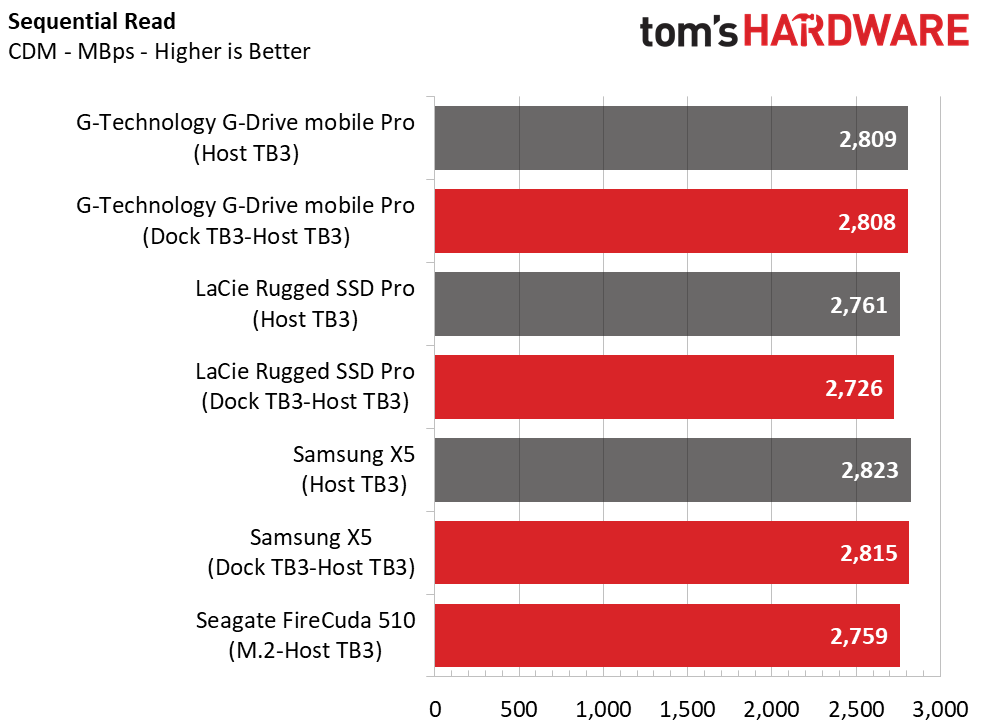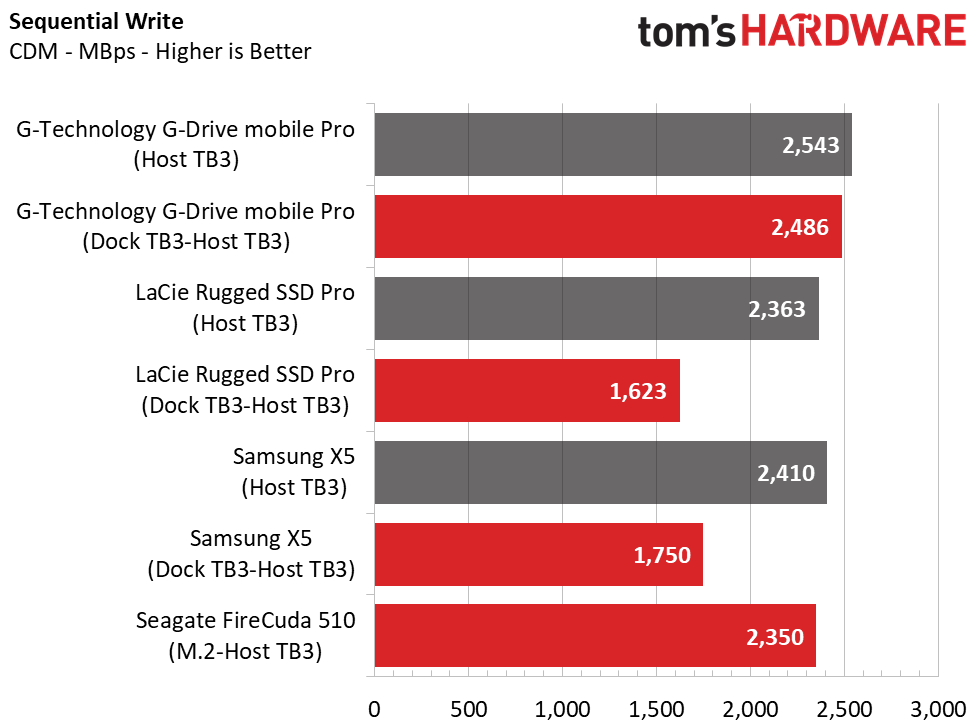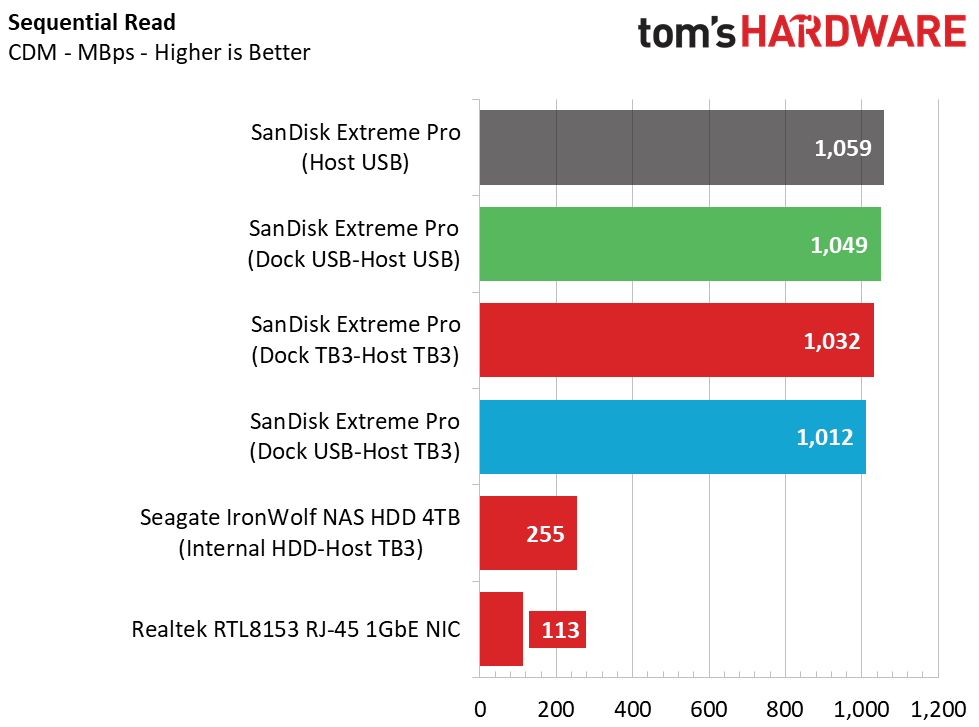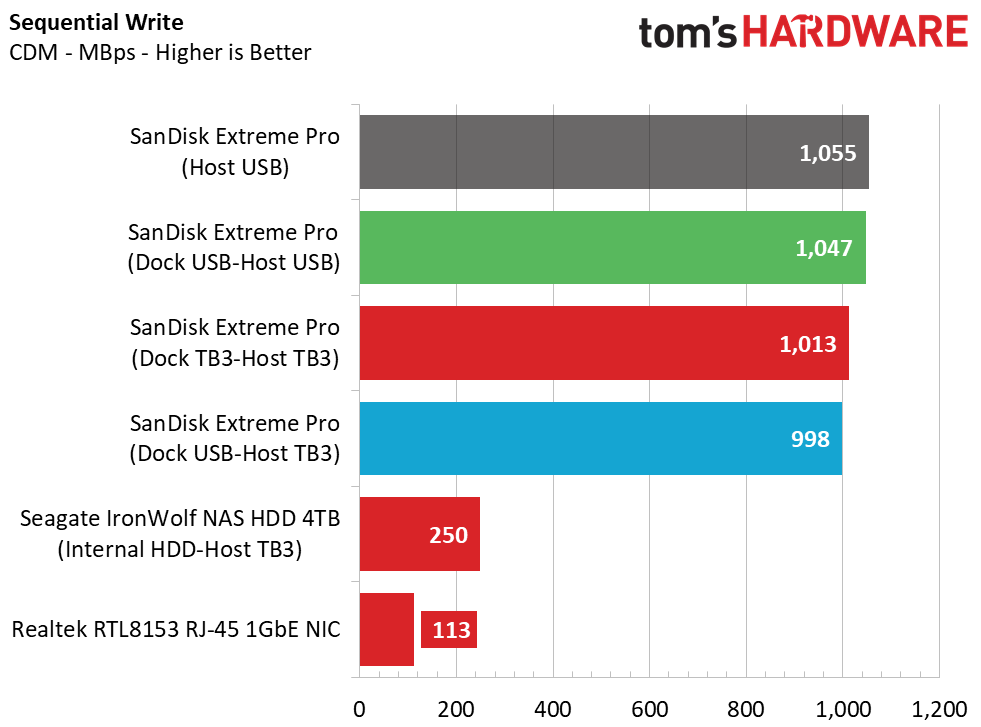Why you can trust Tom's Hardware
Comparison Products
We opted to utilize a few high-end SSDs for connectivity testing. This included the Seagate FireCuda 510, SanDisk Extreme Pro, Samsung X5, LaCie Rugged SSD and G-Technology’s G-Drive mobile Pro SSD, all at the 1TB capacity.
Test System
Outfitted with an ASRock Thunderbolt 3 adapter, utilizing an Intel Alpine Ridge JHL6540 controller, and an ASMedia ASM1543-powered USB 10 Gbps Type-C port, we used an ASRock Z390 Taichi Ultimate and Core i7-9700K-based desktop to verify connectivity and features.
Synthetics - CrystalDiskMark
CrystalDiskMark (CDM) is a simple and easy to use file size benchmarking tool.


First, we tested out the Thunderbolt 3 port with some of the latest Thunderbolt 3 devices. Overall, performance looks to be a little lower than when connected directly to the host system’s Thunderbolt 3 port. With G-Technology’s mobile Pro, the Dock performed well. Up to 2.8/2.5 GBps read/write.
However, the Samsung X5 and LaCie’s Rugged SSD Pro both exhibited lower write performance when connected to the dock, even with write caching enabled, versus being directly connected to the host. The Seagate FireCuda 510 performs quite well in the M.2 slot, though, coming close in performance to the G-Technology Thunderbolt 3 SSD.
Random performance is similarly impacted as well--just a minor reduction in performance. With flash being as responsive as we have come to expect, a small percent change here doesn’t impact the overall usability of your devices all too much.


Next, when testing the other ports, we found them to perform quite well, no matter how many were used or how the dock was connected to the host. Here the internal HDD was also quite speedy, hitting 255/250 MBps read/write while the 1GbE RJ-45 port hit 113 MBps in either direction, too.
Get Tom's Hardware's best news and in-depth reviews, straight to your inbox.
We did find the ASRock Thunderbolt 3 adapter on the host to be a little restrictive compared to the motherboard’s ASMedia USB 3.1 Gen2 link when it came to 10 Gbps device performance. So, results will depend on the device you use it with.
MORE: Best SSDs
MORE: How We Test HDDs And SSDs
MORE: All SSD Content

Sean is a Contributing Editor at Tom’s Hardware US, covering storage hardware.
-
velocityg4 Although pricey. It doesn't seem overly expensive if you have use for all the features. As a separate Thunderbolt 3 dock, 4TB hard drive and Thunderbolt 3 M.2 NVMe enclosure would cost more. I can see why they didn't include charging. As it doesn't seem to be universally consistent among laptop makers. Even when they do offer the feature.Reply -
8086 Does anyone know why this drive has a PCI-e x1 slot?Reply
https://cdn.mos.cms.futurecdn.net/PMDQHeVdhtkoafQxiQdc87-970-80.jpg